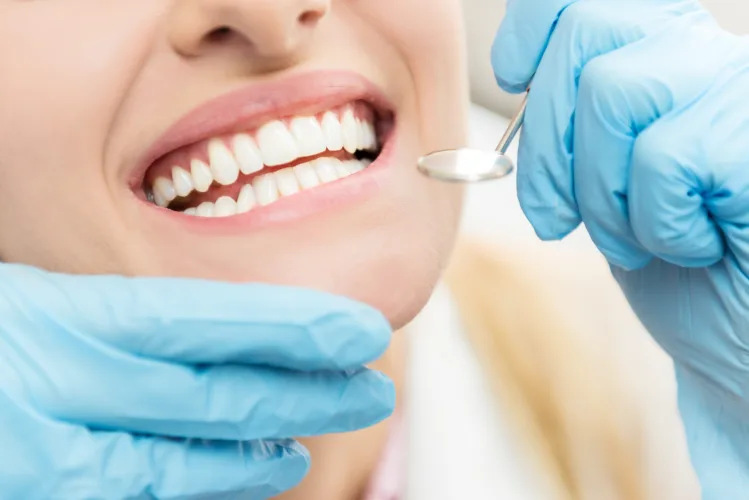
Pregnancy is a challenging time in a woman’s life as her body undergoes immense changes, both mentally and physically. While the hope and excitement of a new baby are ever present, the stress of becoming a mom is undeniable.
For those who have a history of disordered eating, the changes a woman’s body undergoes can be triggering. Even women who have never faced challenges with eating may find themselves distressed and struggling.
Is it possible to have an eating disorder while pregnant?
Pregnancy places unique demands on a woman’s body, like the need for higher caloric intake and balanced nutrition to support fetal development. In other words, the mother needs to be highly aware of the nutrients (or lack thereof) she consumes daily while the baby grows.
For a woman with an eating disorder, these demands can exacerbate existing struggles with food and body image. The natural weight gain and body changes associated with pregnancy may trigger anxiety and distress, intensifying disordered eating behaviors.
Some women may develop eating disorders for the first time during pregnancy as the pressure to maintain a specific body image, combined with hormonal changes and emotional stress, can contribute to the onset of disordered eating.
However, the presence of an eating disorder during pregnancy poses significant risks to both the mother and baby. Nutritional deficiencies resulting from restrictive eating can delay the baby’s growth and development, leading to complications including low birth weight, preterm birth and congenital conditions.
For the mother, malnutrition, electrolyte imbalances and weakened immune function can compromise maternal health. Additionally, women with eating disorders are at a higher risk for obstetric complications, including preeclampsia, gestational diabetes and hyperemesis gravidarum (severe, persistent nausea and vomiting).
Psychological distress, including depression and anxiety, may also be heightened, causing the emotional experience of pregnancy to be highly unpleasant.
What eating disorders might present during pregnancy?
There are a variety of different eating disorders that may arise, continue or even worsen while one is pregnant. The top three are bulimia nervosa, anorexia nervosa and binge eating disorder.
Anorexia nervosa
Anorexia nervosa is characterized by an intense fear of gaining weight and a distorted body image, leading to a severe restriction of food intake. During pregnancy, women with anorexia nervosa may struggle immensely with the natural weight gain that occurs during pregnancy. This can lead to inadequate nutritional intake, critical for fetal development.
Insufficient calorie and nutrient intake can result in intrauterine growth restriction (IUGR), low birth weight and premature birth, causing these infants to be at higher risk for developmental delays and chronic health issues. Additionally, women with anorexia nervosa are more likely to experience complications, including anemia, electrolyte imbalances, and cardiovascular problems.
Bulimia nervosa
Bulimia nervosa involves cycles of binge eating followed by vomiting, excessive exercise or laxative use to overcompensate for the increased calorie intake. Pregnancy can exacerbate the physical and psychological stress associated with bulimia nervosa and worsen these behaviors as a result.
However, frequent purging behaviors can lead to dehydration, electrolyte imbalances and gastrointestinal problems, which can be harmful to both the mother and her growing baby.
Pregnant women with bulimia nervosa may also be at increased risk for gestational diabetes and hypertension. The stress and guilt associated with binge-purge cycles can further strain the emotional well-being of the expectant mother, potentially affecting her ability to care for herself and her baby.
Binge eating disorder
Binge eating disorder is characterized by recurrent episodes of eating large amounts of food in a short period, causing one to feel out of control and emotionally distressed. During pregnancy, this disorder can lead to excessive weight gain and a higher risk of gestational diabetes, preeclampsia, and an increased likelihood of cesarean delivery.
The excess weight can also contribute to postpartum weight retention, which has long-term health implications for the mother. Additionally, the emotional distress tied to binge eating episodes can impact maternal mental health, potentially adding to the experience of postpartum depression and anxiety.
How can an expecting mother address disordered eating concerns?
For struggling women, it is necessary to understand the potential impact of disordered eating on pregnancy. Not only does it affect the baby’s health, it negatively impacts the mother’s health as well. Knowing these risks exist can often be the first step toward seeking help.
Seek counseling
One of the most effective ways to address disordered eating habits during pregnancy is to seek professional help. Medical professionals, including obstetricians, nutritionists, and mental health counselors, can offer comprehensive care tailored to pregnant women.
A multidisciplinary approach can provide nutritional guidance, psychological support and medical monitoring, all essential for managing disordered eating.
Gather a support system
Having a solid support system can positively impact a pregnant woman’s ability to manage disordered eating. Family, friends and support groups can offer a listening ear, practical advice and a sense of community.
Sharing experiences with others who have faced similar challenges can be incredibly empowering and therapeutic. Additionally, involving a partner or close family member in the treatment process can help with accountability.
Gain nutritional insight
Pregnant women can benefit from learning about the specific nutritional needs during pregnancy and how different foods contribute to the health of both mother and baby.
Nutritionists can create personalized meal plans that accommodate your preferences and medical needs, making adhering to a balanced and consistent diet easier.
Managing stress
Pregnancy can be a stressful time, and stress often exacerbates disordered eating habits. Mindfulness techniques such as meditation, yoga and deep-breathing exercises can help manage stress levels and promote a healthier relationship with oneself and one’s body.
Seeking additional help?
If you are struggling, Seeds of Hope is here to help. Call us anytime at 610-644-6464 or complete an online contact form to start today.


